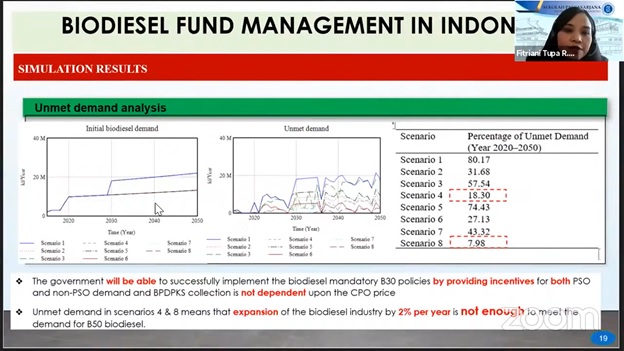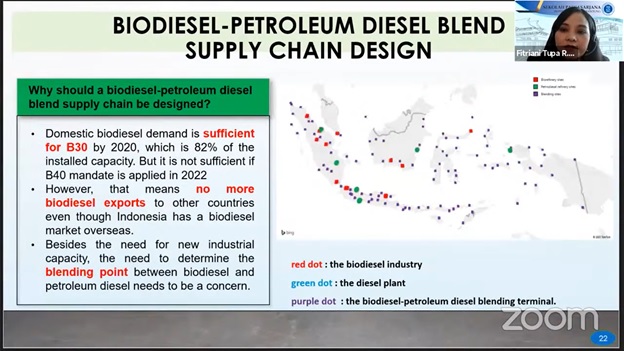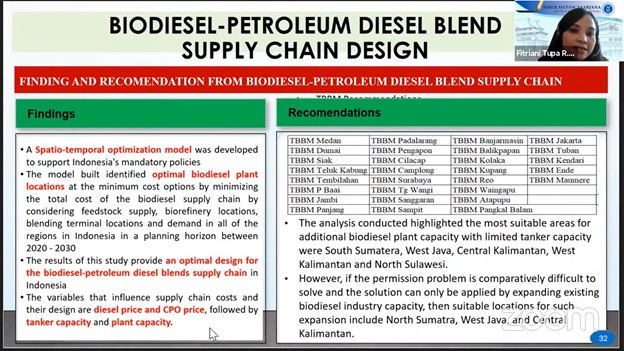Energy has an integral part of modern life. Unfortunately, the vast majority of energy produced worldwide is derived primarily from fossil fuels. Our desire to be free from fossil fuels, on the other hand, will not be realized in a matter of days. The identification process can be long. Then, how do we devise the best strategy to ensure the social and environmental well-being for future generations?
 A lecturer at the Del Institute of Technology, Fitriani Tupa Ronauli Silalahi, explained her dissertation research at the SBM ITB virtual open session. From her thesis entitled “A Hybrid Framework to Design Biodiesel-Petroleum Diesel Blends Supply Chain Policy in Indonesia.” we can better understand where this policy path leads scientifically.
A lecturer at the Del Institute of Technology, Fitriani Tupa Ronauli Silalahi, explained her dissertation research at the SBM ITB virtual open session. From her thesis entitled “A Hybrid Framework to Design Biodiesel-Petroleum Diesel Blends Supply Chain Policy in Indonesia.” we can better understand where this policy path leads scientifically.
“To carry out the biofuel mandate, we face two challenges from biodiesel management: fund management and supply chain mapping. We can see a problem with the base price being higher than fossil fuels and the limited infrastructure to support production,” said Fitriani.
 Looking for Solution
Looking for Solution
The data shows that the government will only be able to successfully implement the policy on B30 biodiesel by providing incentives that can help build a developing biodiesel energy ecosystem. Demand will be created, when various benefits are felt, both for the benefit of public sand non-public service. Furthermore, for the B30 and B50 policies to succeed, the government must implement supporting policies that foster the freedom from the global price of crude palm oil.
Aside from the financial aspect, planning for supply chain mapping can round out the solution. Yet, this can only be accomplished by increasing biodiesel production and storage capacity by constructing new plants and expanding existing storage tanks and other supporting infrastructure.
 Future Challenges
Future Challenges
It should be underlined that this energy migration needs to be done gradually. It takes time to build a production house that can meet future market needs. With the right tempo of change, this Biodiesel-Petroleum Diesel Blends Supply Chain will run optimally without causing a drastic impact on society.
The government must eliminate or minimize the uncertain risk factors that can affect supply chain costs, such as palm oil harvesting, palm oil prices, diesel fuel prices, transportation costs, tank capacity, plant capacity, and investment costs are examples.




